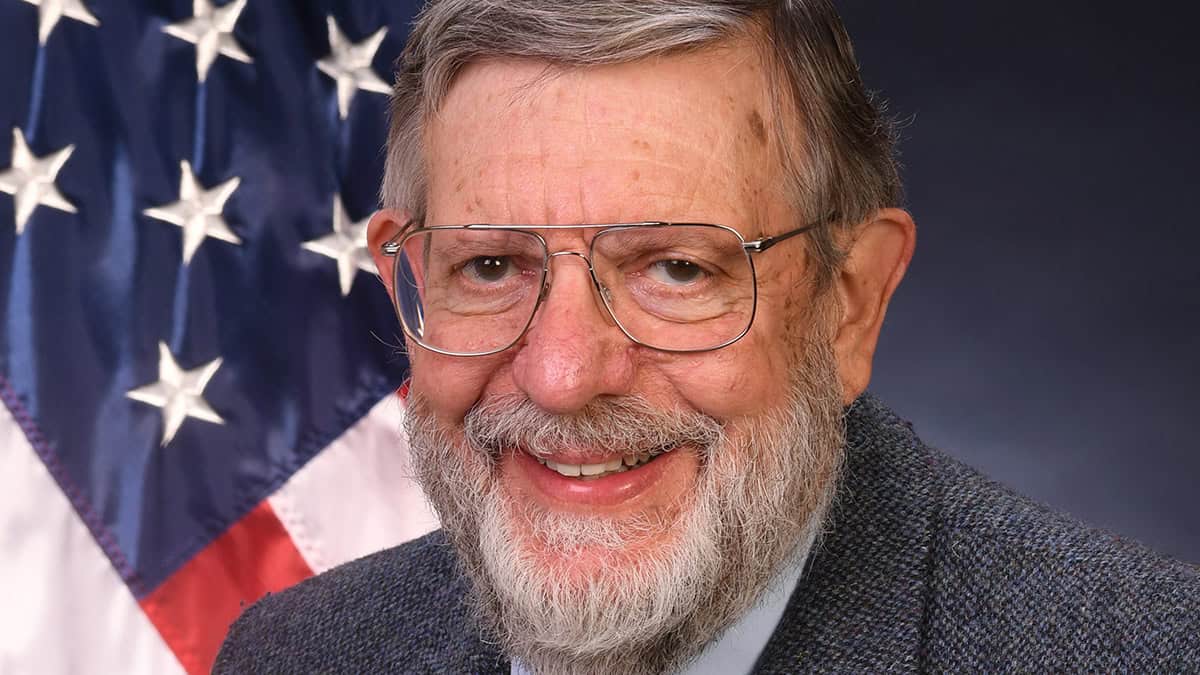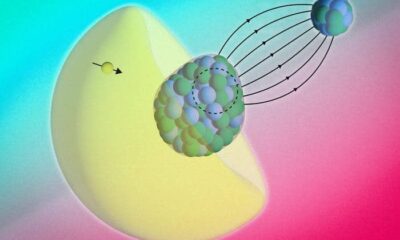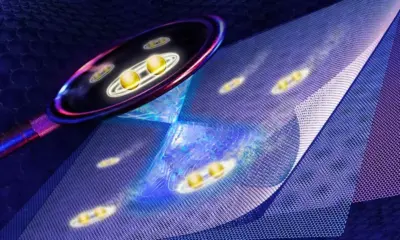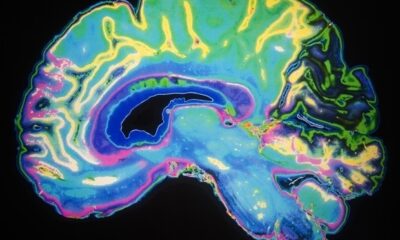Science
William Phillips Discusses the Intricacies of Quantum Physics

William Phillips, a prominent figure in quantum physics, recently shared insights into his extensive career and the marvels of quantum mechanics. As a recipient of the 1997 Nobel Prize for Physics, Phillips has significantly advanced the field, particularly through his work on laser cooling techniques. This innovative approach allows for the cooling of atoms to just above absolute zero, paving the way for breakthroughs such as Bose–Einstein condensates, a state of matter where particles exist in the same quantum state.
Phillips graduated from Juniata College in Pennsylvania in 1970 and pursued his PhD at the Massachusetts Institute of Technology (MIT) under the mentorship of Dan Kleppner. His early work involved measuring the magnetic moment of protons in water. In 1978, he joined the National Bureau of Standards, now known as the National Institute of Standards and Technology (NIST), where he continues to innovate in the field of atomic physics.
In a recent interview, Phillips reflected on his journey into quantum physics, noting that his fascination began during his undergraduate studies when he participated in research on electron spin resonance. He described the peculiar nature of quantum mechanics, stating, “Even in graduate school, I don’t think I understood just how strange entanglement is.” This phenomenon, where two particles become linked in such a way that the state of one instantly influences the state of another, defies classical intuition.
Phillips emphasized that while entanglement is central to quantum mechanics, the principle of superposition has had a profound impact on his work, leading to the development of highly precise atomic clocks. He explained that the best clock in the world during his early years at NIST was accurate to one part in 1013. Today, thanks to advancements in laser cooling and trapping techniques, measurements can achieve accuracy down to one part in 1018.
Currently, Phillips and his colleagues are exploring various applications of quantum technology, including advancements in atomic clock precision and the burgeoning field of quantum information. One notable development involves the use of qubits, which can exist in a superposition of states, allowing for faster problem-solving compared to traditional binary systems. A groundbreaking example is Peter Shor’s algorithm, which enables quantum computers to factor large numbers significantly quicker than classical computers.
Looking ahead, Phillips expressed optimism about the future of quantum computing, suggesting it holds potential for revolutionizing industries, particularly in areas like cryptography and quantum chemistry. However, he acknowledged that practical applications are still on the horizon. He humorously proposed a bet with colleague Carl Williams regarding the capabilities of quantum computers by 2045, with Williams believing that a quantum computer will emerge capable of factoring numbers beyond the reach of classical systems.
Reflecting on his career, Phillips highlighted the importance of unexpected discoveries in scientific research. He pointed to the accidental discovery of sub-Doppler laser cooling, which demonstrated that atoms could be cooled to temperatures lower than previously theorized. This finding has had lasting implications, influencing the design of modern atomic clocks and other quantum technologies.
As the International Year of Quantum Science and Technology unfolds, Phillips’s contributions remind us of the transformative potential of quantum mechanics. His excitement for the field remains palpable as he discusses the challenges ahead, particularly in achieving long-lasting, reliable qubits that can perform complex calculations.
Quantum physics, according to Phillips, is not just an abstract concept but a fundamental aspect of our reality that has led to technological advancements that shape everyday life. He concludes, “Quantum mechanics was the most important discovery of 20th-century physics,” underscoring its pivotal role in the development of devices that have become integral to modern society.
As the journey into quantum science continues, Phillips’s insights reveal both the complexities and the wonders of a field that remains, in his words, “deliciously weird.”
-

 World5 days ago
World5 days agoCoronation Street’s Shocking Murder Twist Reveals Family Secrets
-

 Entertainment4 months ago
Entertainment4 months agoKate Garraway Sells £2 Million Home Amid Financial Struggles
-

 Entertainment3 months ago
Entertainment3 months agoAnn Ming Reflects on ITV’s ‘I Fought the Law’ Drama
-

 Entertainment3 days ago
Entertainment3 days agoAndrew Pierce Confirms Departure from ITV’s Good Morning Britain
-

 Health3 months ago
Health3 months agoKatie Price Faces New Health Concerns After Cancer Symptoms Resurface
-

 Entertainment4 weeks ago
Entertainment4 weeks agoCoronation Street Fans React as Todd Faces Heartbreaking Choice
-

 World4 weeks ago
World4 weeks agoBailey Announces Heartbreaking Split from Rebecca After Reunion
-

 Entertainment1 week ago
Entertainment1 week agoTwo Stars Evicted from I’m A Celebrity Just Days Before Finale
-

 World1 week ago
World1 week agoKevin Sinfield Exceeds Fundraising Goal Ahead of Final Marathons
-

 Entertainment3 months ago
Entertainment3 months agoCoronation Street’s Carl Webster Faces Trouble with New Affairs
-

 Entertainment3 months ago
Entertainment3 months agoWhere is Tinder Swindler Simon Leviev? Latest Updates Revealed
-

 Entertainment4 months ago
Entertainment4 months agoMarkiplier Addresses AI Controversy During Livestream Response





















